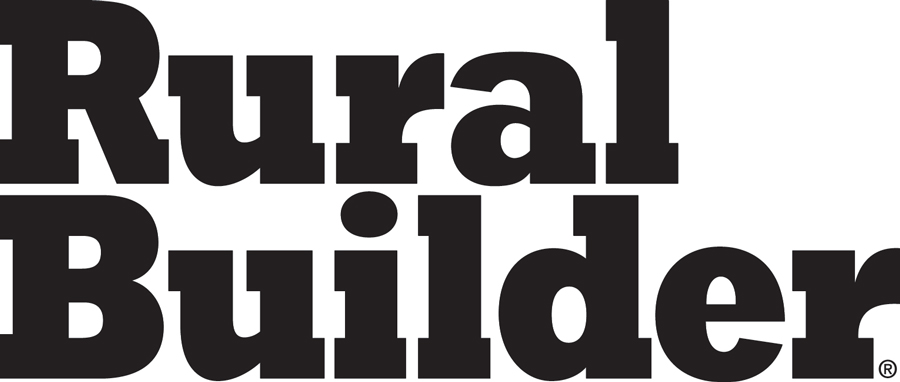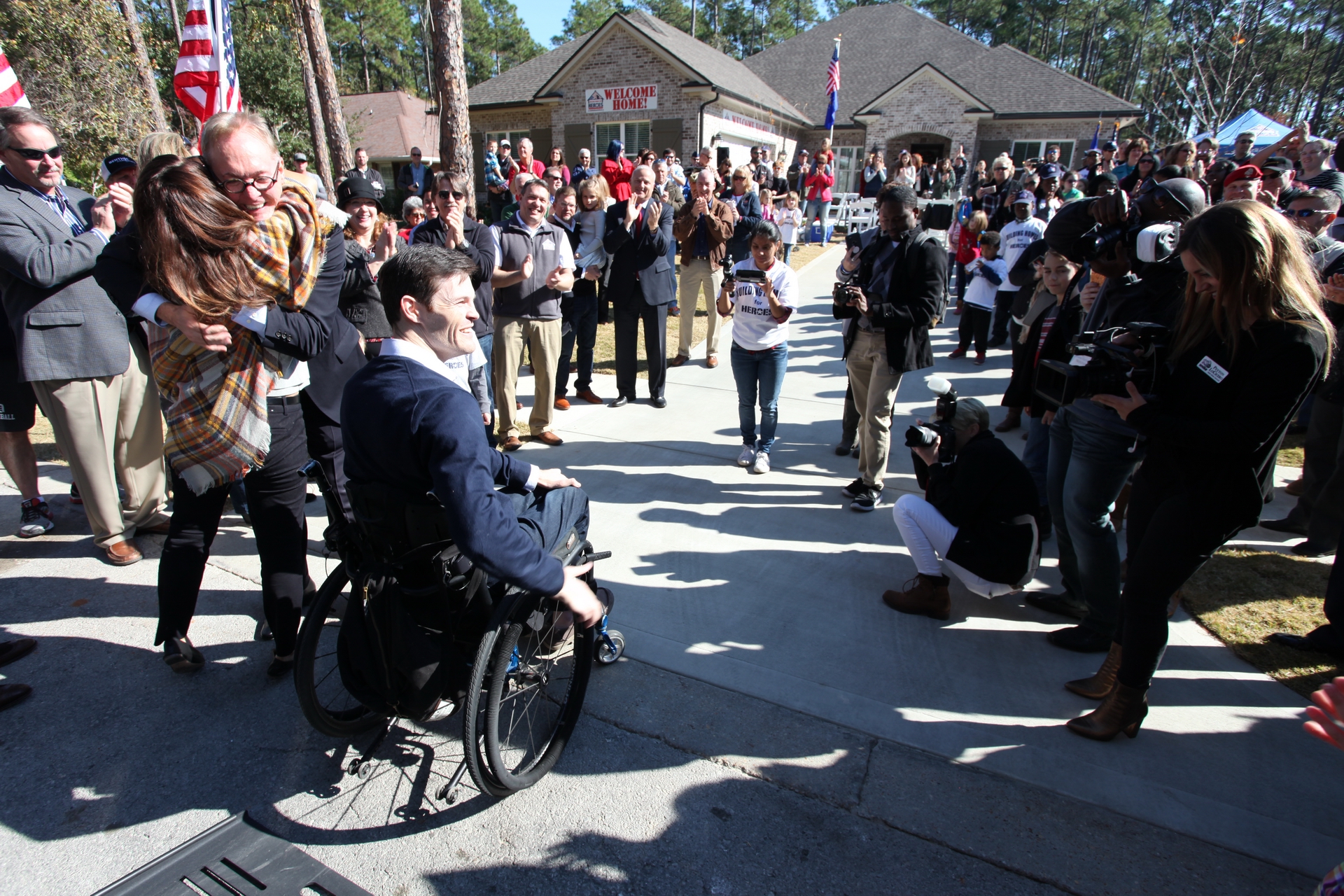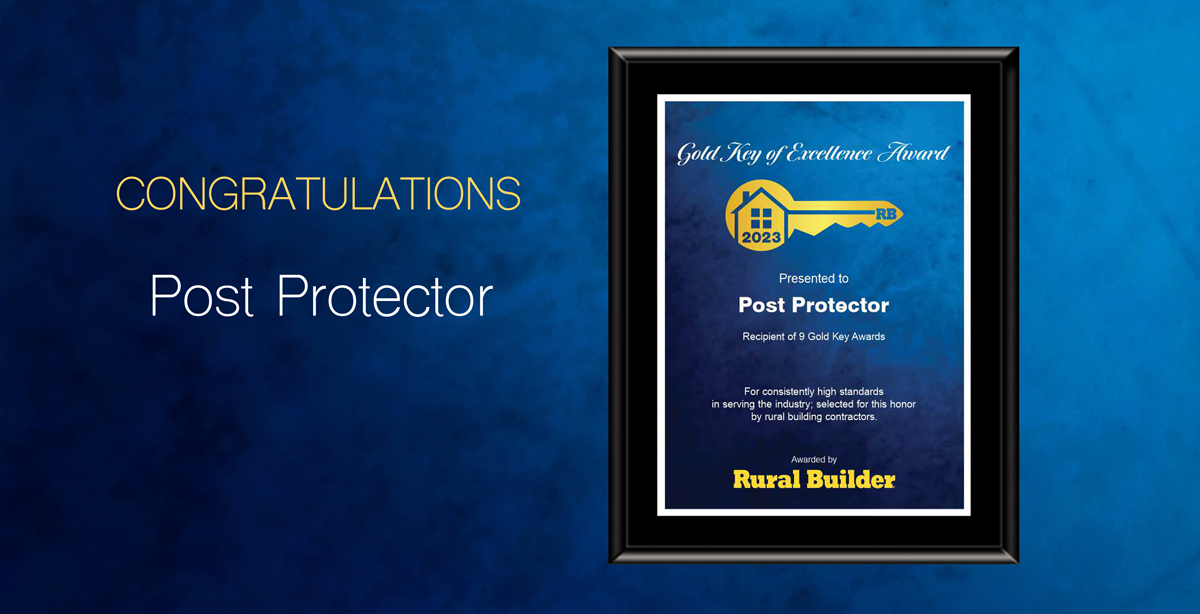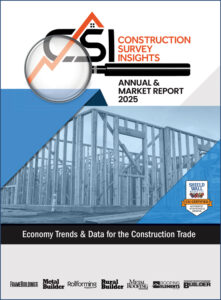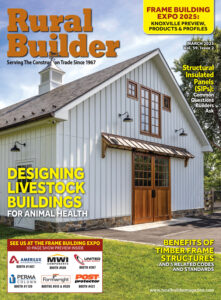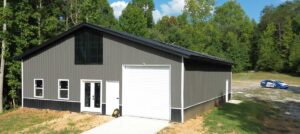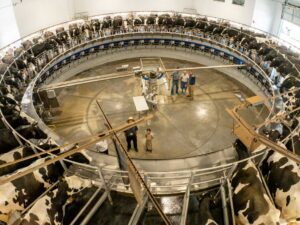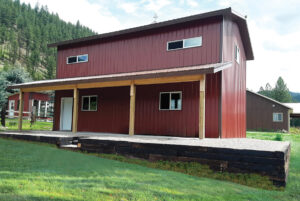By Karen Knapstein
Building Homes for Heroes® gives wounded veterans opportunities for a more promising future, but the organization was borne out of disaster and heartbreak. As a result of the 9-11 terrorist attacks on America, Andy Pujol volunteered in the search and rescue for survivors; he worked side by side with first responders. After witnessing the horrors around him, he pledged to serve the country and to help the men and women who fought to defend America’s freedom. As a result, Pujol founded the Building Homes for Heroes organization.
The non-profit organizes the modification and building of homes and gifts them to injured veterans and their families. The homes are all customized to restore the veterans’ freedom, which enables them to lead more independent and productive civilian lives. Since they are mortgage-free, it helps remove the financial burden on the families who have suffered through serious service-related injuries.
Building Homes for Heroes Vice President Kimberly Vesey, who has worked with the organization full time since 2012, shared some history and insights about the organization and its founder. After 9-11, she said, Pujol started helping charities by donating and volunteering wherever possible. He didn’t know where the funding was going but he felt strongly that he needed to help. One day, he heard young veterans talking on the radio about the struggles they were dealing with. Pujol decided he would help in a more tangible way: He would build a home and gift it to a veteran. From that single goal, the organization was founded in 2006. At that time, their motto was “One home, one dream.”
Vesey said once Pujol incorporated and that one home was adapted and gifted, he thought, “Why stop now?” So the goals grew, and the organization grew.
Since its foundation in 2006, Building Homes for Heroes has grown into a nationwide partnership of communities and corporations working together to serve our nation’s heroes. The role of Building Homes for Heroes is organization: They raise funds and provide oversight for projects. In order to provide veterans and their families with the homes they need, Building Homes for Heroes depends on partnerships with builders and manufacturers.
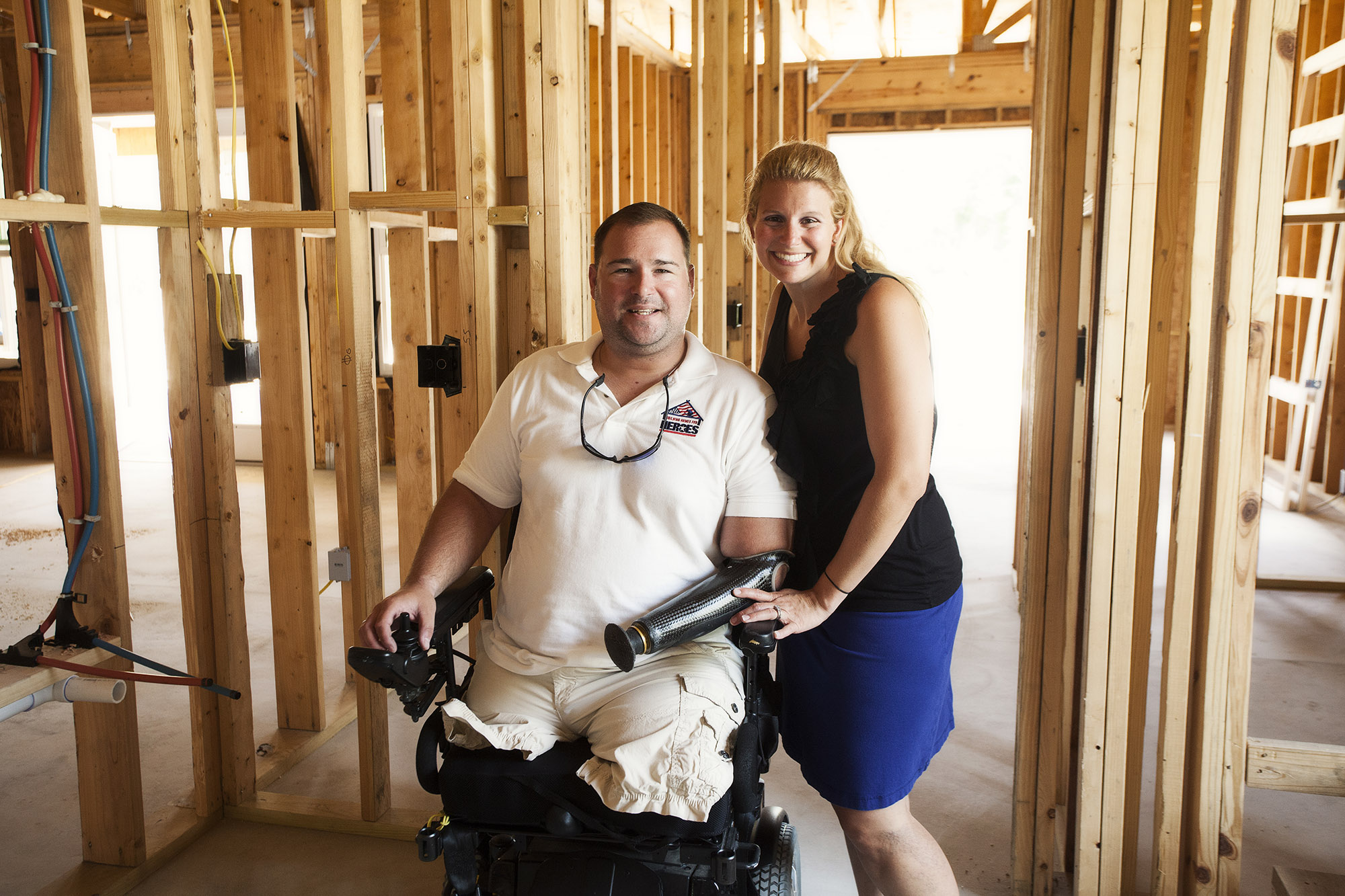
Building Homes for Heroes built a home for Joe Deslauriers, an US Air Force Master Sergeant, and his wife, Lisa. Photo courtesy of Building Homes for Heroes.
Partnerships with national distributors are critical because those companies can ship directly to the building site, Vesey explained. Sponsors who provide materials may be eligible for certain deductions for donating products and they are included in the promotional coverage, which includes being a part of a community welcome home ceremony and being placed on the organization’s website, among other opportunities.
At the local level, the organization relies on builders and architects to donate labor or time. When a suitable home location has been selected, Building Homes for Heroes partners with local builders and then pulls in those national product sponsors.
Serving Those Who Served
Building Homes for Heroes helps create a more positive outlook for veterans and their families by taking the weight and worry of a mortgage off their shoulders. By not having to worry about where and how they will live, veterans who have been seriously injured can focus on their own healing, and on rebuilding their families and their futures.
Based in New York, Building Homes For Heroes is a 501(c)3 non-profit organization that serves the entire country. “We’ve gifted homes in 33 states in home gifts and modifications,” Vesey said. “Our goal is to assist injured veterans in every state of our country.”
The number of modified home gifts versus new homes built changes yearly based upon need and the organization’s available funding, said Vesey. “In 2020 we are aiming to still reach our goal of about 40 homes, of which six or seven will be new construction. Obviously COVID has derailed us a bit, but we are still working strong toward that goal.”
While home gifting is the largest program, Building Homes for Heroes offers many other types of assistance. These additional programs include financial planning, sponsorships for athletic programs, and emergency support, to name a few.
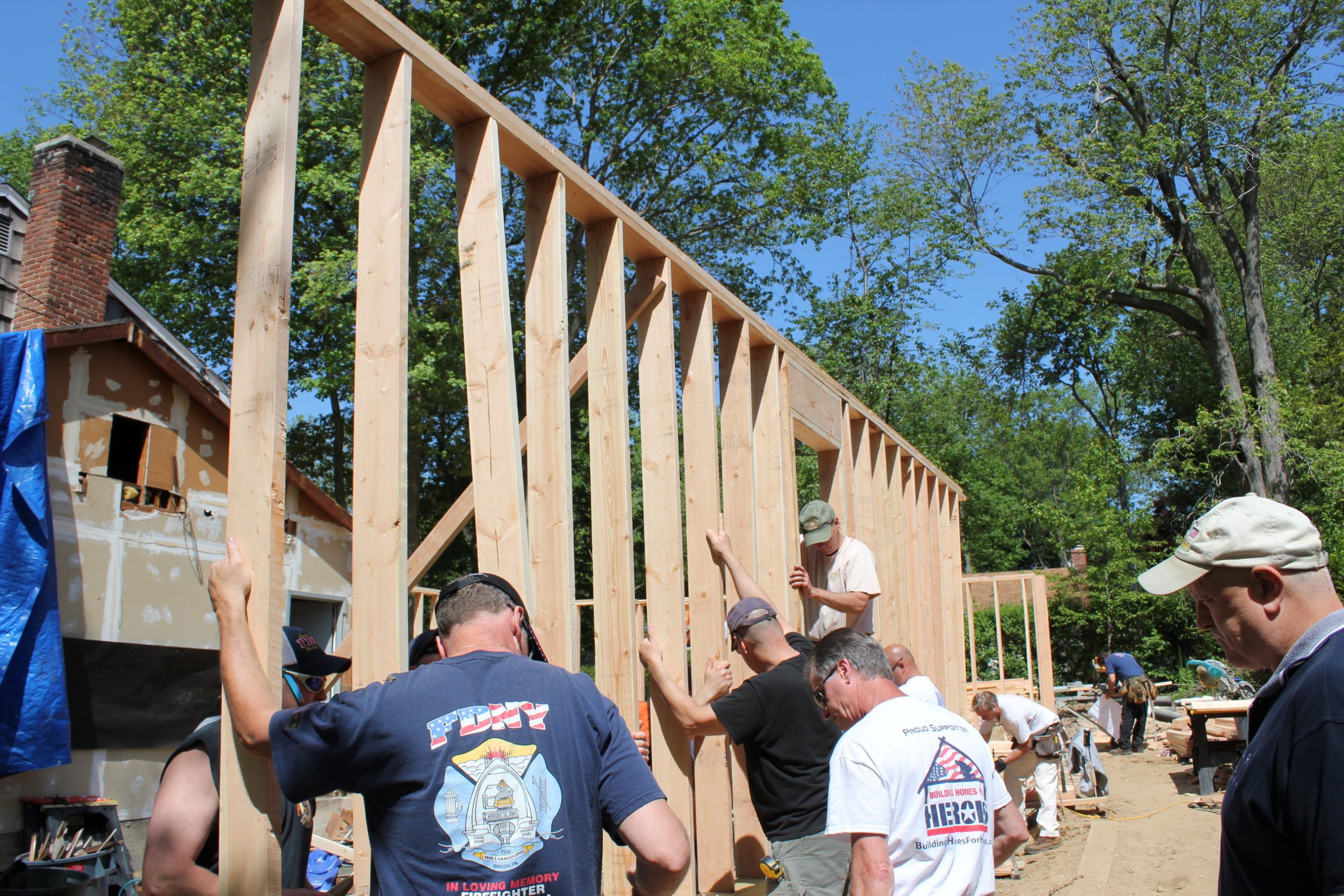
When inquiry was made about determining a veteran’s eligibility to receive benefits from Building Homes for Heroes, Vesey said they’re not a strict standard criteria organization; that sets them apart from other organizations. “We’ve gifted multiple homes to veterans with invisible wounds,” she said. “Mental and psychological injuries can be extremely difficult to deal with. There are many severe injuries you cannot see.”
During the COVID-19 pandemic, the non-profit acted quickly and initiated a new program; it sent $500 checks to veterans for emergency funding. The pandemic has been devastating to veterans with PTSD. “Psychological wounds cause veterans to fear for their lives,” explained Vesey. Due to COVID-19, those who suffer from PTSD are “afraid now for their spouse, children, and parents. They’re afraid now for the people that they love.”
Home Customizations
In order to allow wounded veterans to be truly at ease in their new homes, Building Homes for Heroes customizes each home to fit each person. “We customize our builds to fit the needs of the individual,” Vesey said. “Every person is going to be completely different. Two above-knee amputations is going to be very different than one below-knee amputation. A person with above-knee amputations is going to be in a wheelchair most of the time,” she explained. “Ramps, roll-in showers are very important. A lot of our veterans have issues with balance and so we do roll-in showers for pretty much all of our homes.”
The modifications aim to give veterans independence. “For someone who is in a wheelchair, we put in pull-down cabinetry in the kitchen so they can get their own cups and dishes. We would put in stovetops that come up or down and pull-down closets.” They also put in ramps and pool lifts in therapy pools. For someone in a wheelchair, whose ability for physical activity is limited, a therapy pool is very important for allowing physical exercise and preventing additional health problems.
Smart home adaptations are important accommodations for veterans with disabilities. “Being able to access the alarm system, temperature control, televisions, lights, and all those things is important for the physically disabled. Getting back up to turn off a light is much more difficult,” Vesey explained.
Those who don’t have physical limitations find smart home adaptations make life much easier, too. “It’s just as important for those who have severe PTSD to be able to look at a phone or iPad to check and see if their door is locked – however many times it takes. It’s important for their sense of security,” Vesey said. Not needing to get out of bed throughout the night to see that their home is secure helps them lead a more conventional life.
Special accommodations made in a home for those who have lost their eyesight include installing different floor types or textures from room to room and installing chair moldings on the walls so they can feel where they are going. Vesey said in one particular case they gave a veteran that loved to cook, but found it difficult after losing his eyesight, a home with an adapted kitchen. He went on to start a very successful chocolate business that he started right in that very kitchen.
Regaining Independence
Master Sergeant George Vera was severely injured in Afghanistan while serving in the Army. He joined the Army in 1995. During his 20th year of service, he was severely injured defending his base from an enemy attack. The injuries have caused Master Sergeant Vera to be paralyzed from the waist down, confining him to a wheelchair.
For his service to his country, Master Sergeant Vera was awarded the Purple Heart, Silver Star, Bronze Star Medal (4x), and many other commendations.
Master Sergeant Vera, his wife, Angela, and daughter, Isabella, were awarded a mortgage-free, custom-built home in Florida. Receiving the home was a blessing for the entire family: It gave back the veteran’s independence at home; it reestablished Angela as a wife rather than a full-time caregiver; and it allowed the young girl to once again have fun with her dad.
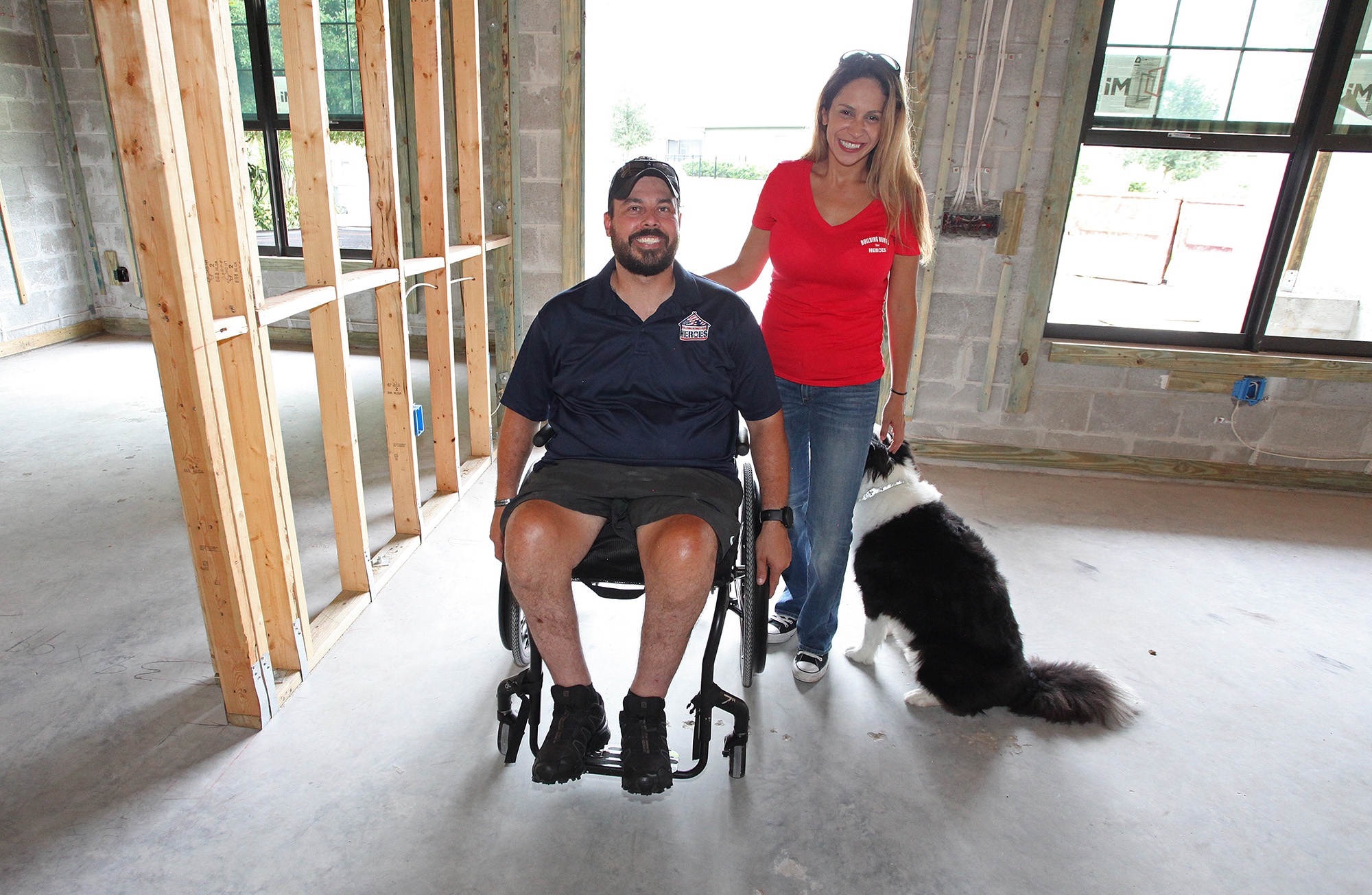
“It gives us a lot of opportunity to spend time together,” said the Master Sergeant. “I love to cook, and the kitchen is 100% accessible for myself,” he said. “To me that means cooking, and sitting down with your family and enjoying time with them … finding out how their day was, what they did, which is what I think we need to get back to.”
“The home also gives us a lot of time for recreation. We have a beautiful pool out there. My daughter loves to get in the pool and now I’ll be able to go in there with her because of how the pool is designed. And that will help my wife to be able to relax. She can do whatever she needs to do; she won’t need to be right there to babysit neither myself nor my daughter. I can start taking more a role as a parent now, and start doing more things that will help make her life become a little easier.”
“Building Homes for Heroes gave us happiness. It gave us an opportunity to become a family again,” said an emotional Angela. “It gave me freedom because now I don’t have to help my husband to do everything. Building Homes for Heroes gave to my husband the opportunity to be independent.”
“Building Homes for Heroes gave to my daughter the opportunity to do normal things in this house,” Angela said.
“I love to go swimming and my dad always liked to go swimming with me, but the pools weren’t accessible. It was really hard for him to get in. But Building Homes for Heroes gave us a pool that he can roll in … He can just go in his wheelchair inside the pool.”
“One of the things that I most enjoy to do in the house is go into my dad’s room where he has his military things. … When I go into that room it’s, like, so special to me,” a tearful Isabella said. “It shows me what he did and all that he did. It shows me what freedom is and what freedom costs. For my dad, it cost so much for him. It cost his legs and his best friend. But Building Homes for Heroes gave us a house; they gave us a house that he can do anything in … not needing us to help him with anything anymore.”
Before getting the house from Building Homes for Heroes, the Vera family lived in an apartment. Isabella recollected it was inaccessible. She said some days he didn’t even want to get out of bed because it was so hard to move around. “They gave us freedom in this house,” she said.
Building the Future
Building Homes for Heroes has set the bar high; on average, they seek to gift one home every 11 days. With continued support, the organization hopes to reach its 300th home gift by 2021.
Construction professionals who are interested in volunteering and helping Building Homes for Heroes give injured veterans a better future should contact Jim Rogers, Building Homes for Heroes Director of Development, at 516-684-9220. RB
